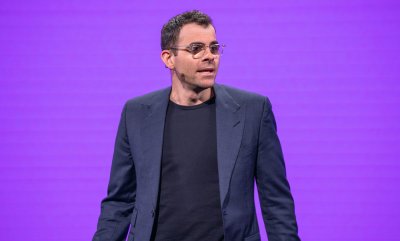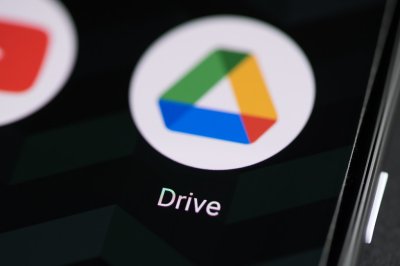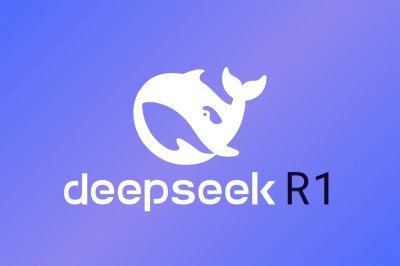Quora's Poe Unleashes AI Model API: Over 100 Models Now Accessible to Developers
@devadigax31 Jul 2025

Quora, the popular question-and-answer platform, has significantly expanded its foray into the burgeoning AI landscape with the launch of a developer API for its Poe platform. This move grants developers access to a diverse array of over 100 AI models, encompassing text, image, video, and voice capabilities. This strategic release positions Quora as a major player in the AI model marketplace, offering a comprehensive and readily accessible suite of tools for developers looking to integrate advanced AI functionalities into their applications.
The Poe API represents a significant leap forward for both Quora and the wider AI development community. Previously, access to such a broad spectrum of AI models was often fragmented, requiring developers to navigate various platforms and APIs. Quora’s consolidated approach simplifies this process, offering a one-stop shop for developers seeking diverse AI capabilities. The potential applications are vast, spanning a multitude of industries and use cases.
The sheer number of models available through the API is impressive. Over 100 models, covering text, image, video, and voice, provide developers with unprecedented flexibility and choice. For text-based applications, this could mean access to models specializing in different tasks, such as language translation, summarization, text generation, and sentiment analysis. Similarly, image-based models could enable features like image generation, object recognition, and image captioning. The inclusion of video and voice models opens up further possibilities for applications in fields like video editing, voice recognition, and even AI-powered virtual assistants.
This move by Quora is a strategic response to the growing demand for accessible and versatile AI tools. The rapid advancements in AI technology have led to an explosion of innovative applications across various sectors. However, access to high-quality AI models remains a significant barrier for many developers. Quora's API directly addresses this challenge by providing a readily available and extensive collection of models, thus lowering the barrier to entry for developers of all skill levels.
The implications for the AI industry are substantial. By democratizing access to a wide range of models, Quora is fostering innovation and potentially accelerating the development of new AI-powered applications. This could lead to breakthroughs in various fields, including healthcare, education, finance, and entertainment. The availability of diverse models also encourages experimentation and the development of hybrid applications that leverage the strengths of multiple AI models to achieve more complex tasks.
The economic impact of this API launch is also noteworthy. By providing developers with readily accessible AI tools, Quora is facilitating the creation of new products and services, potentially boosting economic growth in the technology sector. Furthermore, the accessibility of these tools could also empower smaller startups and independent developers, fostering competition and innovation within the AI industry.
The release of the Poe API is not without its potential challenges. Managing the diverse range of models and ensuring their responsible use will require robust infrastructure and oversight. Quora will likely need to implement mechanisms to prevent misuse of the models, particularly concerning issues such as bias, misinformation, and copyright infringement. Transparency in model training and performance metrics will also be crucial to build trust and maintain the integrity of the platform.
Beyond the technical aspects, the success of the Poe API will depend on Quora's ability to effectively support developers and foster a vibrant community. Providing comprehensive documentation, tutorials, and a responsive support system will be essential for attracting and retaining developers. Furthermore, encouraging collaboration and knowledge sharing among developers will accelerate the development of innovative AI applications.
The launch of the Poe API marks a significant step for Quora's expansion into the AI market. By offering a comprehensive and accessible suite of AI models, Quora is positioning itself as a key player in the rapidly evolving AI landscape, empowering developers to build the next generation of AI-powered applications. The long-term success of this initiative will hinge on continuous improvement, active community engagement, and a commitment to responsible AI development. The coming months and years will be crucial in observing how developers leverage this new resource and the innovations it inspires.
The Poe API represents a significant leap forward for both Quora and the wider AI development community. Previously, access to such a broad spectrum of AI models was often fragmented, requiring developers to navigate various platforms and APIs. Quora’s consolidated approach simplifies this process, offering a one-stop shop for developers seeking diverse AI capabilities. The potential applications are vast, spanning a multitude of industries and use cases.
The sheer number of models available through the API is impressive. Over 100 models, covering text, image, video, and voice, provide developers with unprecedented flexibility and choice. For text-based applications, this could mean access to models specializing in different tasks, such as language translation, summarization, text generation, and sentiment analysis. Similarly, image-based models could enable features like image generation, object recognition, and image captioning. The inclusion of video and voice models opens up further possibilities for applications in fields like video editing, voice recognition, and even AI-powered virtual assistants.
This move by Quora is a strategic response to the growing demand for accessible and versatile AI tools. The rapid advancements in AI technology have led to an explosion of innovative applications across various sectors. However, access to high-quality AI models remains a significant barrier for many developers. Quora's API directly addresses this challenge by providing a readily available and extensive collection of models, thus lowering the barrier to entry for developers of all skill levels.
The implications for the AI industry are substantial. By democratizing access to a wide range of models, Quora is fostering innovation and potentially accelerating the development of new AI-powered applications. This could lead to breakthroughs in various fields, including healthcare, education, finance, and entertainment. The availability of diverse models also encourages experimentation and the development of hybrid applications that leverage the strengths of multiple AI models to achieve more complex tasks.
The economic impact of this API launch is also noteworthy. By providing developers with readily accessible AI tools, Quora is facilitating the creation of new products and services, potentially boosting economic growth in the technology sector. Furthermore, the accessibility of these tools could also empower smaller startups and independent developers, fostering competition and innovation within the AI industry.
The release of the Poe API is not without its potential challenges. Managing the diverse range of models and ensuring their responsible use will require robust infrastructure and oversight. Quora will likely need to implement mechanisms to prevent misuse of the models, particularly concerning issues such as bias, misinformation, and copyright infringement. Transparency in model training and performance metrics will also be crucial to build trust and maintain the integrity of the platform.
Beyond the technical aspects, the success of the Poe API will depend on Quora's ability to effectively support developers and foster a vibrant community. Providing comprehensive documentation, tutorials, and a responsive support system will be essential for attracting and retaining developers. Furthermore, encouraging collaboration and knowledge sharing among developers will accelerate the development of innovative AI applications.
The launch of the Poe API marks a significant step for Quora's expansion into the AI market. By offering a comprehensive and accessible suite of AI models, Quora is positioning itself as a key player in the rapidly evolving AI landscape, empowering developers to build the next generation of AI-powered applications. The long-term success of this initiative will hinge on continuous improvement, active community engagement, and a commitment to responsible AI development. The coming months and years will be crucial in observing how developers leverage this new resource and the innovations it inspires.
Comments
Related News

Beyond the Mic: Instagram Denies Eavesdropping, But AI's Predictive Power Redefines Digital Privacy
@devadigax | 01 Oct 2025
@devadigax | 01 Oct 2025

Microsoft 365 Premium Redefines AI Productivity, Bundling Copilot to Rival ChatGPT Plus Pricing
@devadigax | 01 Oct 2025
@devadigax | 01 Oct 2025

Wikimedia's Grand Vision: Unlocking Its Vast Data Universe for Smarter Discovery by Humans and AI
@devadigax | 30 Sep 2025
@devadigax | 30 Sep 2025

Google Drive Fortifies Defenses with New AI-Powered Ransomware Detection
@devadigax | 29 Sep 2025
@devadigax | 29 Sep 2025

The DeepSeek Phenomenon: Unpacking the Viral AI Chatbot from a Leading Chinese Lab
@devadigax | 29 Sep 2025
@devadigax | 29 Sep 2025
 AI Tool Buzz
AI Tool Buzz